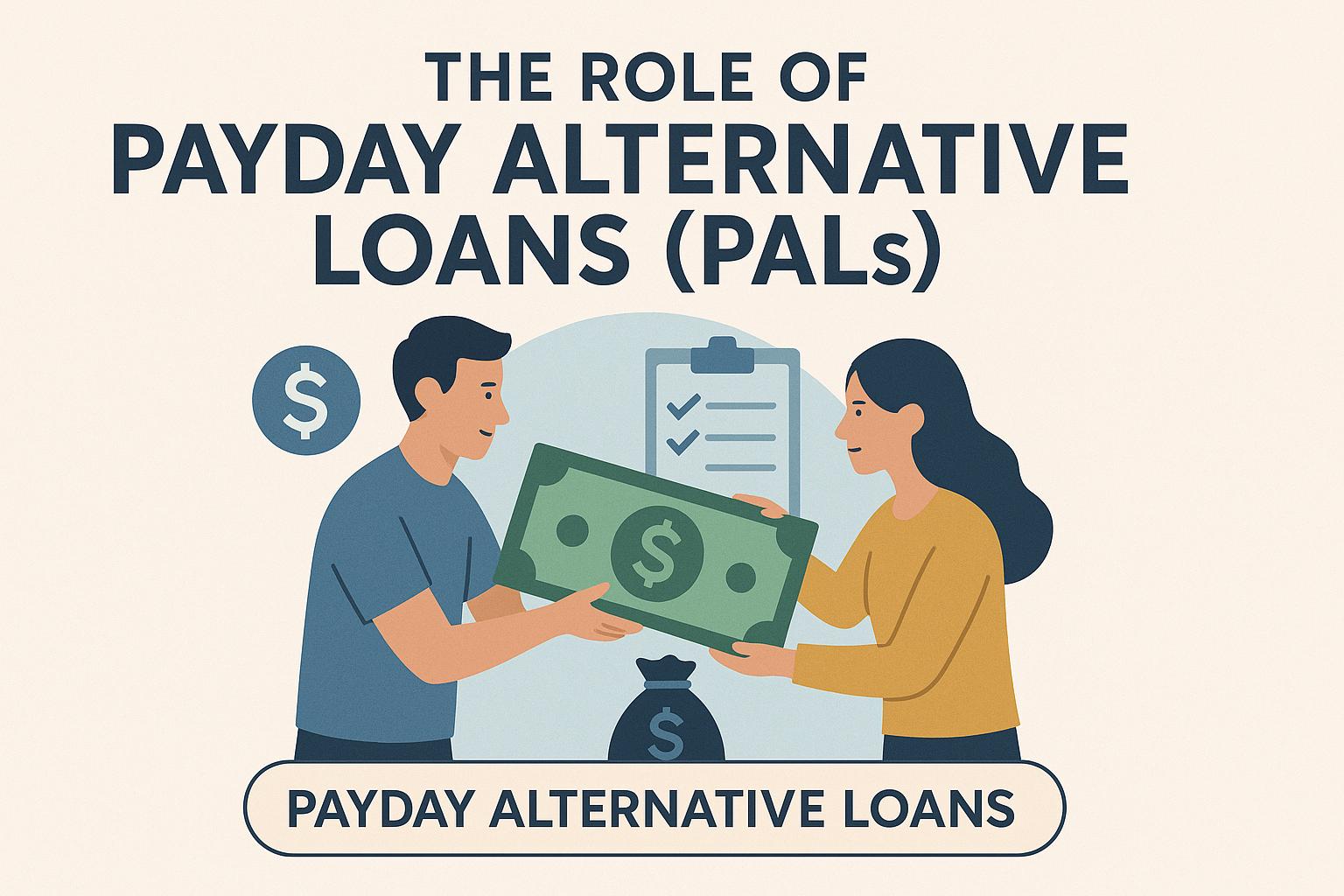
The role of payday alternative loans (PALs).
Introduction to Payday Alternative Loans (PALs)
Payday Alternative Loans (PALs) are financial products designed to offer consumers a safer and more affordable option than traditional payday loans. With the increasing challenges of financial management, PALs have emerged as a solution that aims to mitigate the negative effects of conventional payday lending. These loans are predominantly offered by credit unions and are accompanied by standardized terms, ensuring that borrowers are shielded from the predatory practices often associated with payday loans.
Key Features of Payday Alternative Loans
PALs are imbued with several key features that significantly differentiate them from traditional payday loans and make them a viable alternative:
Loan Amounts and Terms: PALs generally provide loan amounts ranging between $200 and $1,000, offering more flexibility to borrowers. While these amounts can vary depending on the credit union’s policies, the loan terms are notably longer than those of traditional payday loans, often extending from one to six months. This extended period provides borrowers with more breathing room to manage their finances.
Interest Rates: One of the most attractive features of PALs is their competitive interest rates, significantly lower than those attached to payday loans. Credit unions offering PALs adhere to regulations set by the National Credit Union Administration (NCUA), which caps the interest rate at 28% APR. This regulated interest rate structure ensures that the loan remains affordable over its term.
Application Fee: Credit unions may charge a reasonable application fee, typically not exceeding $20, which stands in stark contrast to the often exorbitant fees linked with payday loans. This minimal fee underscores the commitment to providing an economically viable product for borrowers.
Regulatory Framework
In the United States, Payday Alternative Loans are governed by the NCUA, which ensures adherence to a set of standardized practices designed to protect consumers. These regulations are stringent and cover several critical areas:
- To access a PAL, borrowers must be established members of the credit union offering the loan for a period of at least one month. This membership requirement reinforces borrower credibility and encourages long-term relationships with financial institutions.
- Maximum interest rates and application fees must be clearly disclosed to borrowers and must remain within the set regulatory limits. This ensures transparency and prevents exploitation.
- PALs are structured in a way that prevents loans from being rolled over, a deliberate move to prevent the cycle of debt commonly seen with payday loans.
Eligibility and Application Process
The eligibility criteria for obtaining a Payday Alternative Loan are intentionally simplified to focus on inclusivity while promoting responsible lending. Borrowers generally need to maintain membership with a participating credit union for a minimum period, which varies between institutions. The application process for PALs is designed to be more straightforward than traditional loans, emphasizing the borrower’s ability to repay rather than relying heavily on credit scores.
Benefits of Payday Alternative Loans
PALs provide numerous benefits over traditional payday loans, making them a compelling choice for individuals in need of short-term financial assistance:
Affordability: The capped interest rates and fees associated with PALs mean that they are fundamentally more affordable and carry less financial risk. Borrowers are more likely to manage their repayments without accruing additional debt.
Transparency: The regulatory framework that governs PALs mandates clear disclosure of all terms and costs. This transparency ensures that borrowers have a comprehensive understanding of their financial obligations, thereby promoting trust and confidence in the lending process.
Simple Repayment: With more manageable repayment terms, PALs prevent borrowers from falling into a cycle of continuous debt. The structured repayment plans ensure that borrowers can settle their loans without compounding financial strain.
Comparison: PAL vs. Traditional Payday Loans
Traditional payday loans have garnered criticism due to their high interest rates and often opaque fee structures, leading borrowers into a cycle of borrowing and indebtedness. In stark contrast, PALs are crafted to be straightforward and transparent, focusing on responsible lending practices. This differentiation is pivotal, as it signifies a shift toward consumer-centric financial products.
By offering lower costs, longer terms, and regulated practices, PALs allow borrowers to address their short-term financial needs without the negative repercussions of traditional payday loans. This responsible lending model is integral in fostering a healthier financial ecosystem for borrowers who may not have access to conventional banking products.
Conclusion
Payday Alternative Loans (PALs) represent a responsible and consumer-friendly alternative to traditional payday loans. By providing lower costs, extended terms, and adhering to regulated practices, PALs enable borrowers to meet their immediate financial needs without succumbing to the pitfalls of unregulated lending. The focus on responsible lending practices and borrower protection underscores the commitment to financial welfare and stability.
For more comprehensive insights on PALs and how they function, potential borrowers are encouraged to explore resources such as MyCreditUnion.gov. This platform offers valuable information on how credit unions can assist in providing these advantageous loan products, thereby promoting informed financial decisions and fostering responsible financial behavior.
